A clatter in the compressor or the jangle of a loose component often leads to annoyingly loud noise, and you would want to do everything in your power to reduce the racket that ensues.
Fortunately, there are ways to identify the cause for this and a few quick and easy ways to fix this problem and restore the peace in your RV.
Your RV AC could be loud because of loose or overtightened fittings, because the AC unit is old, or even due to the breakdown of the fan motor. Some easy ways to fix this problem are by installing an RV silencer unit, tightening the bolts, and regular maintenance of the AC unit.
If your RV’s AC seems to be on the brink of disrepair, then it might be a good option to consider investing in a new air conditioning unit.
But before you do that, you need to thoroughly inspect to see if the problem can be easily fixed.
This article will explore some of the common causes that lead to loud noise in an RV’s AC and look at some quick fixes.
6 Causes Why Your RV AC Is So Loud
As we see with all other HVAC systems, there is always the sound of a gentle hum that is ongoing.
The air conditioner in your RV is no exception, and it produces a certain amount of sound whenever it is turned on.
This sound is often produced by the clicking of the compressors or the fan blades as they whir, and most of these sounds are normal.
Nevertheless, you need to pay attention if this sound gets louder than normal; it could either mean that maintenance is overdue or that you need to check the air conditioning unit for any probable causes for this loud noise.
It could be something minor that needs a quick fix. Here are some causes of why your RV AC is making more noise than usual.
The AC Unit Is Old
One of the leading causes of the sound coming from an RV’s AC unit is probably because the AC unit is old and outdated.
In most of these cases, the AC unit is too old to be repaired, and sometimes even replacing certain parts of the unit or repairing them will not reduce the noise.
After a certain point, it only makes sense to consider purchasing a new AC unit if the older one is beyond repair or can only function by producing high decibels of sound every time.
Fan Motor Is Not Functioning Properly
Fan motors often are the culprit behind the loud noise in the RV’s AC. If an AC unit is rather frequently used, then the likely cause of the loud noise is because the fan motor needs some care and upkeep.
The problem gets compounded if the fan motor is of an old AC unit, as they tend to make a lot more noise.
Consider checking your fan motor thoroughly for signs of damage. When you are inspecting the tool, also consider looking up how old the fan motor is.
Remember, the older the motor and the more outdated, the more noise it is likely to make.
If the fan motor is too far gone, replacing it may be a good idea to stop the noise.
In case you cannot determine if the fan motor is damaged or whether it is old enough to be considered outdated, seek out the help of a professional to help you determine the fan’s condition.
If a replacement is required, it is still less costly than buying a brand new AC unit. You can do the replacement on your own as well.
All you will need is a basic understanding and know-how of electrical and mechanical appliances.
Loose or Overtightened Components
Oftentimes the real cause behind a really loud noise could be rather small.
A loose bolt here, an overtightened knob there – all these factors may contribute to a loud cranking noise coming from your RV’s AC.
Something as small as a loose nut or a screw can create an abnormally loud noise.
You will need to check the system thoroughly for any loose nuts or bolts in order to ascertain if that is the cause of the loud noise.
When you inspect the AC unit, remember to check each screw, nut, and bolt that is tightened in place.
You will be looking for any particular component that is screwed in too tightly.
If you find one, unscrew it ever so lightly that it is no longer unusually tight.
If you find any loose component, tighten that in place so that all the hardware components can now function as one unit.
When in doubt, always consult the user manual to figure out where the loose component of the air conditioning unit will have to go in.
In case you cannot figure out using the manual, consider taking the help of a professional to get it done.
Worn Out Rubber Cushions
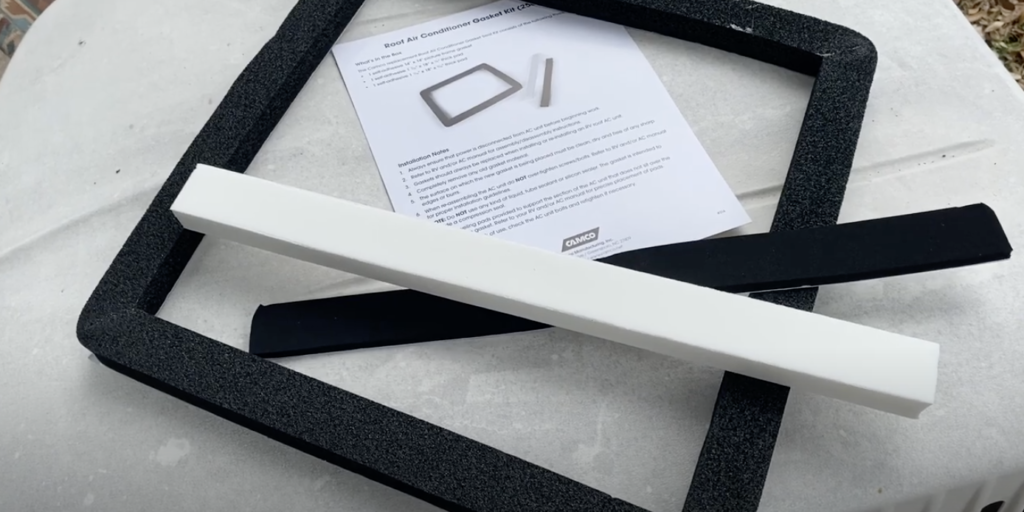
All air conditioning units come with rubber cushions installed inside to absorb any vibration caused by the various components and parts of the AC unit.
Over time and due to frequent and prolonged use, these rubber cushions may fray and wear out completely, leaving no buffer to absorb the air conditioning unit’s noise.
When this happens, and the rubber cushion has mostly worn out, it would seem that the air conditioning unit tends to produce noise that is more than usual.
However, that is not the case. It is still producing the same amount of noise as it produced earlier.
this time, there are no rubber cushions to absorb the noise.
Properly functioning rubber cushions are a great way to minimize noise.
It will absorb most of this sound produced by the AC when it is running, and because the rubber cushions do not take up extra space, they are also great for RVs.
To reduce the noise coming out of your AC, you would need to consider replacing the worn-out rubber cushions with new ones.
Sometimes the rubber cushions also get hardened instead of wearing out.
This, too, is unhelpful when it comes to deadening the noise coming from your AC unit.
Your AC Unit Is Overworked
All AC units are built to normalize the temperature in an enclosed space.
If the temperature outside is too hot, the AC unit will have to work much harder to make the air suitable for indoor circulation at the pre-set temperature.
The basic science behind its functioning is that it brings in outside air, processes it to bring it to the desired temperature level, and then distributes it for circulation in the enclosed space.
An overworked AC unit will begin to break down after a certain point in time.
Over time, there may be irreparable wear and tear, which may lead to loud noise emanating from the AC unit.
The loud noise is the AC’s way of telling you that it is in dire need of some respite from the heavy workload it is being subjected to.
In order to know whether your AC unit can withstand the temperature you are headed to, it is a good idea to consult the user manual that comes with your AC unit to know the maximum temperature in which your AC can function optimally.
Too much exposure to an incredibly hot climate may require certain parts and components of your AC unit to be changed.
Before you embark on making these replacements, make sure that you have a basic understanding of the electrical outlets and their functions. Enlist the help of a professional when in doubt.
How Your AC Unit Is Mounted
Often a tightly bolted AC unit may become the cause of unnecessary and loud noise in your RV.
They may be screwed so tightly to the RV wall that any vibration emitting off the AC as it runs will reverberate on the walls and cause a ruckus every time you run the AC.
You will have to check the mounting bolts to determine how tightly they are plugged into the wall.
If they seem to be too tightly screwed to the wall, then you may have to unscrew them slightly so that they are still stuck to the wall but not in a way that every vibration will be transmitted down the length of the wall.
In other words, the AC unit needs to be snug in place.
This is also a good time to check for loose screws and nuts because having even one loose nut or bolt may cause a key component of the unit to be displaced or dislodged, thus leading to more loud noises.
6 Ways to Make Your RV Air Conditioner Less Noisy
There are a few ways you can try to make your RV’s air conditioner less loud without having to purchase a whole new air conditioner.
Sometimes a simple and easy fix is all it needs to function properly and stop emitting loud noise.
You can do most of these fixes if you have a basic knowledge of how electrical things work.
However, if you are in doubt, it is always advisable to refer to the user manual for guidance or enlist the help of a professional who can assist you with getting the RV’s air conditioner fixed and restoring peace once again in your RV.
You can also watch this video below as a quick guide on fixing your RV AC quickly and with less cost:
Consider Installing a Silencer for the AC Unit
In case you cannot find any particular problem with your AC unit, then one way to eradicate the AC unit’s sound is by installing a silencer for the air conditioner.
There are lots of options available in the market today, and the installation process takes hardly 10-15 minutes.
The VIVOSUN 6 Inch Noise Reducer Silencer for Inline Duct Fan hinders the sound waves and allows the air to flow through the duct.
No products found.
A good silencer can lower the AC’s sound by approximately 10 decibels, bringing down the noise considerably and helping you restore the silence and calm within your RV.
Most of these silencers use a thick lining made of cotton placed inside the duct system itself so that the noise is muffled.
Having a silencer installed will ensure that you will never have to choose between staying cool or watching TV or between your sleep and the AC.
Regular Maintenance Is Critical to Avoid Unnecessary Noise
Regular maintenance of the AC unit is vital in maintaining the AC unit in top shape.
A small part that may have come loose, or minor damage in one part, if overlooked over a certain period, may lead to loud noises in the AC.
So, it is vital for the general upkeep and proper functioning of the AC unit to do regular maintenance work.
During this routine maintenance, any nuts or bolts that may have come loose or any part of the AC unit that needs replacing can be taken care of to avoid any future pain or suffering.
If small repair works are done in time, it will save you many hassles later, including the hassle and headache of loud noises coming from your RV’s AC.
Regularly check up the key components of your AC unit, such as the following:
- Fan Motor
- Condenser Coils
- Filters
- Ducts
- Evaporator Coils
- Vents
It will be helpful to ensure that these key components are clean and free from dust and other obstructions at all times to ensure the smooth and noiseless functioning of the AC unit.
Oil the Fan Motor
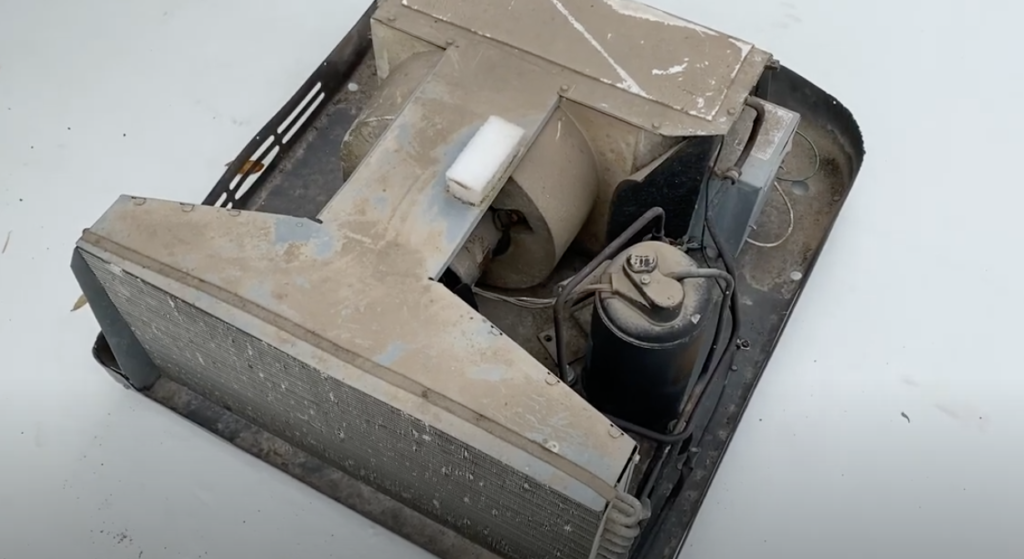
It is also critical to provide proper lubrication to your fan motor. The friction generated in the fan motor’s continuous use may create unnecessary noise in your AC.
By providing adequate lubrication, the wear and tear can also be reduced, and it will further ensure that the metal on metal friction does not cause any loud or squeaky noise.
When using a lubricant, it is essential to use good quality ones so that the metal in the fan motor does not get damaged in the process.
Clean Out Greasy Ducts
Having dirty and grimy ducts can also lead to many problems, including the generation of a lot of unwanted noise every time you turn on your AC unit.
You need to keep the ducts clean, or, in some cases where they cannot be cleaned thoroughly, replacing them with new ducts in order to reduce the noise coming out of the AC unit.
Remember to check the ducts when you are going about doing your routine maintenance work for the AC unit.
It will be an excellent time to identify any loose ends and fix them so that the overall functioning of your AC is not impacted, and any unwelcome noise is prevented.
Make Sure That the Air Vents Are Open
If, by chance, there is restricted airflow in the AC unit, then that too can cause a loud whirring noise as the AC unit is putting in double the effort to suck in the air before it processes the air further.
The AC unit must have access to enough air in the first place to circulate cooler air into the RV.
Closed air vents or air vents with a lot of dust and dirt are also one of the reasons why AC Units make a loud noise.
You will need to check the AC unit and keep the air vents clean and open to ensure that enough air is being sucked into the unit when you turn your AC on.
Check for the Cooling Capacity in Your AC Unit
Not all AC units are designed for extremely harsh climates. Some AC units may be particularly overworked if they have to function in an incredibly hot climate.
So, it is essential to check for AC’s cooling capacity before you make a purchase.
If you know you are headed to an incredibly hot and humid place, it is important to invest in an AC that can withstand the hot air there and function continuously and optimally using that hot air.
Conclusion
It is understandable if you want to switch off the AC completely in order to escape the noise and have some peace and quiet.
But you do not always have to trade your comfort for peace.
By looking for the possible causes for the disruption and trying to fix them, you can both have the comfort of the air conditioner and your peace of mind
Hopefully, you were able to find this article helpful in understanding some of the common issues that lead to loud noises coming from the RV’s AC and the solutions we can implement to mitigate these problems.

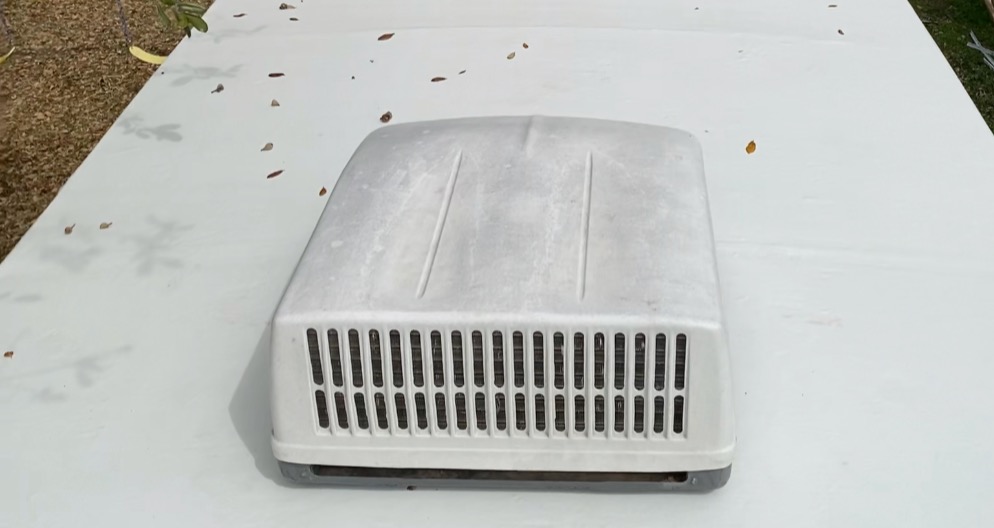
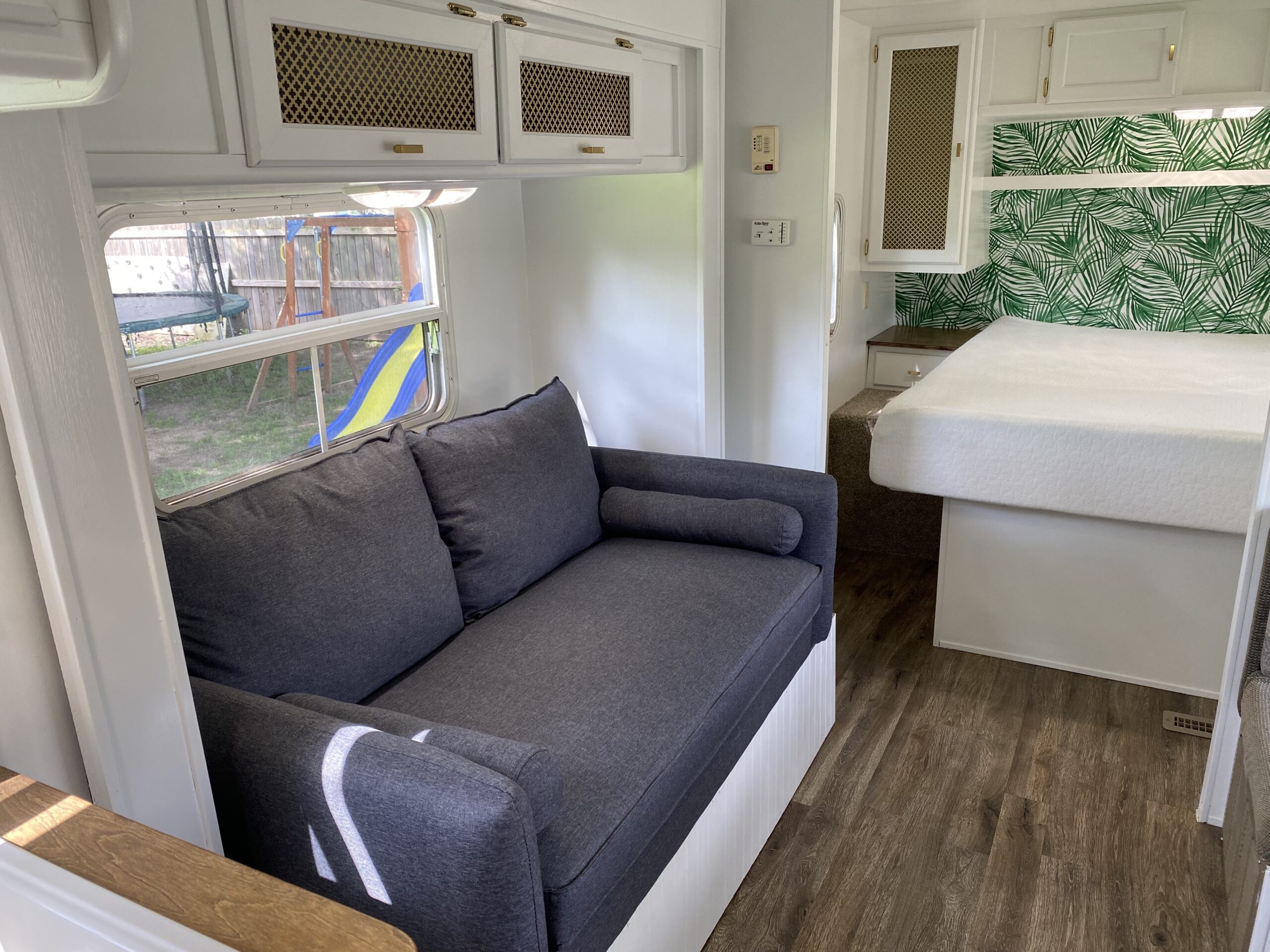
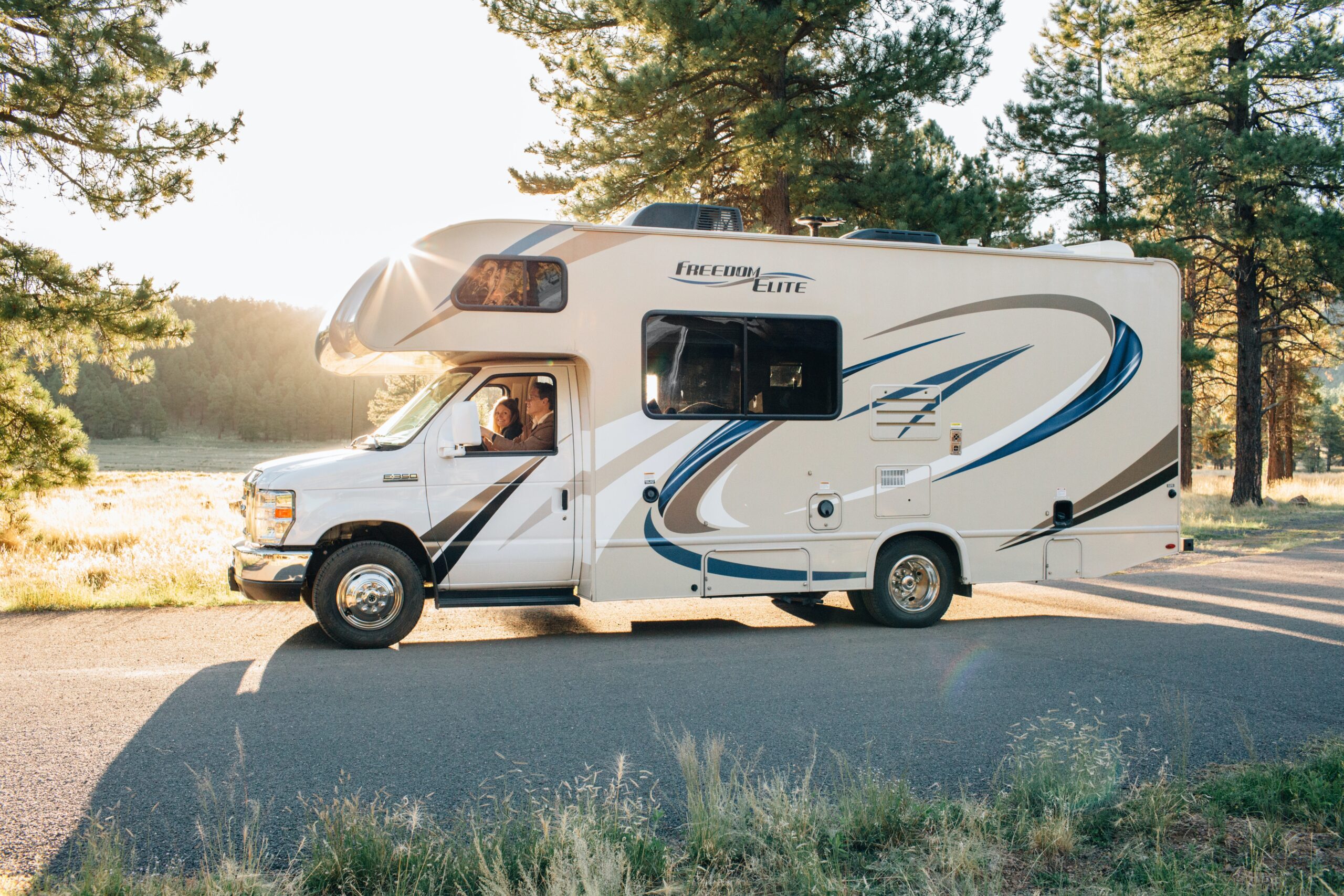

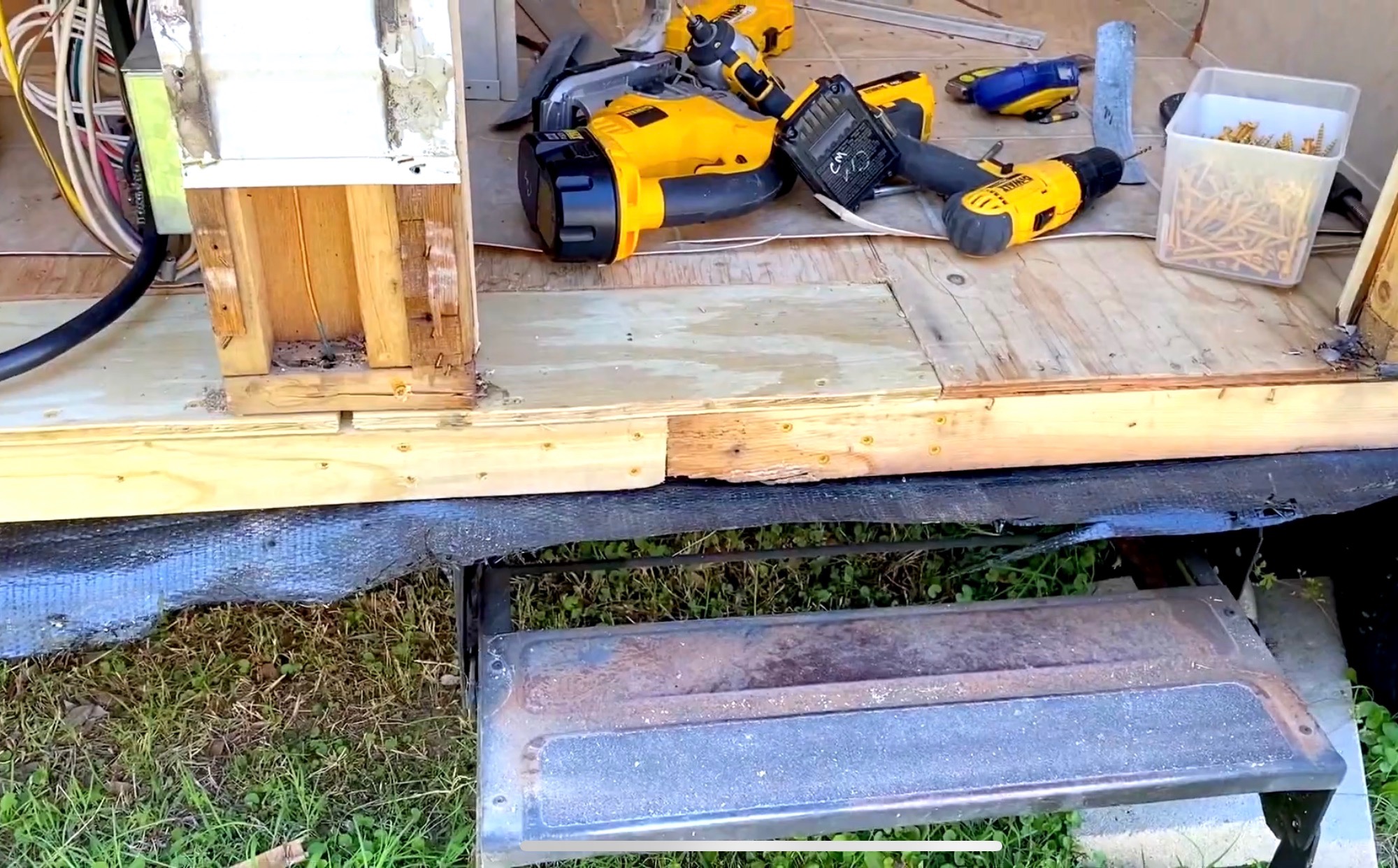

One Response
This was an informative article. We are newbie RVers. We’ve done & loved primitive camping, so boondocking sounds right up our alley. Please keep the articles coming. Grace & Dick/ evergreen4489@hotmail.com